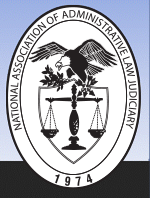Abstract
The troubled status of the immigration court system has garnered much attention from scholars, appellate judges, and even the United States Attorney General. This article suggests a new lens through which to examine the acknowledged crisis in immigration courts: judicial ethics. Because the term judicial ethics encompasses a broad array of principles, the article narrows its focus to bias and incompetence on the part of immigration judges in the courtroom. Immigration judges operate as a unique judiciary under the Executive Branch of government. An examination of the modern immigration court system, including inadequate disciplinary procedures for immigration judges, reveals that the existing structural crisis has substantial implications for judicial ethics. Evidence of biased and incompetent judicial conduct has been found in statistics showing inconsistent decisions and cases reviewed by circuit courts. Recognizing the breadth and severity of the problem, the Attorney General proposed new ethical Codes of Conduct for immigration judges in June 2007. However, the proposed Codes are weakened by their lack of specificity and enforceability. Accordingly, the article recommends reforms designed to encourage unbiased and competent judicial behavior. Implementation of these reforms will initiate the process of restoring the ethical integrity of the immigration bench.
Recommended Citation
Michele Benedetto,
Crisis on the Immigration Bench: An Ethical Perspective,
28 J. Nat’l Ass’n Admin. L. Judiciary
Iss. 2
(2008)
Available at:
https://digitalcommons.pepperdine.edu/naalj/vol28/iss2/4
Included in
Administrative Law Commons, Immigration Law Commons, Legal Ethics and Professional Responsibility Commons

